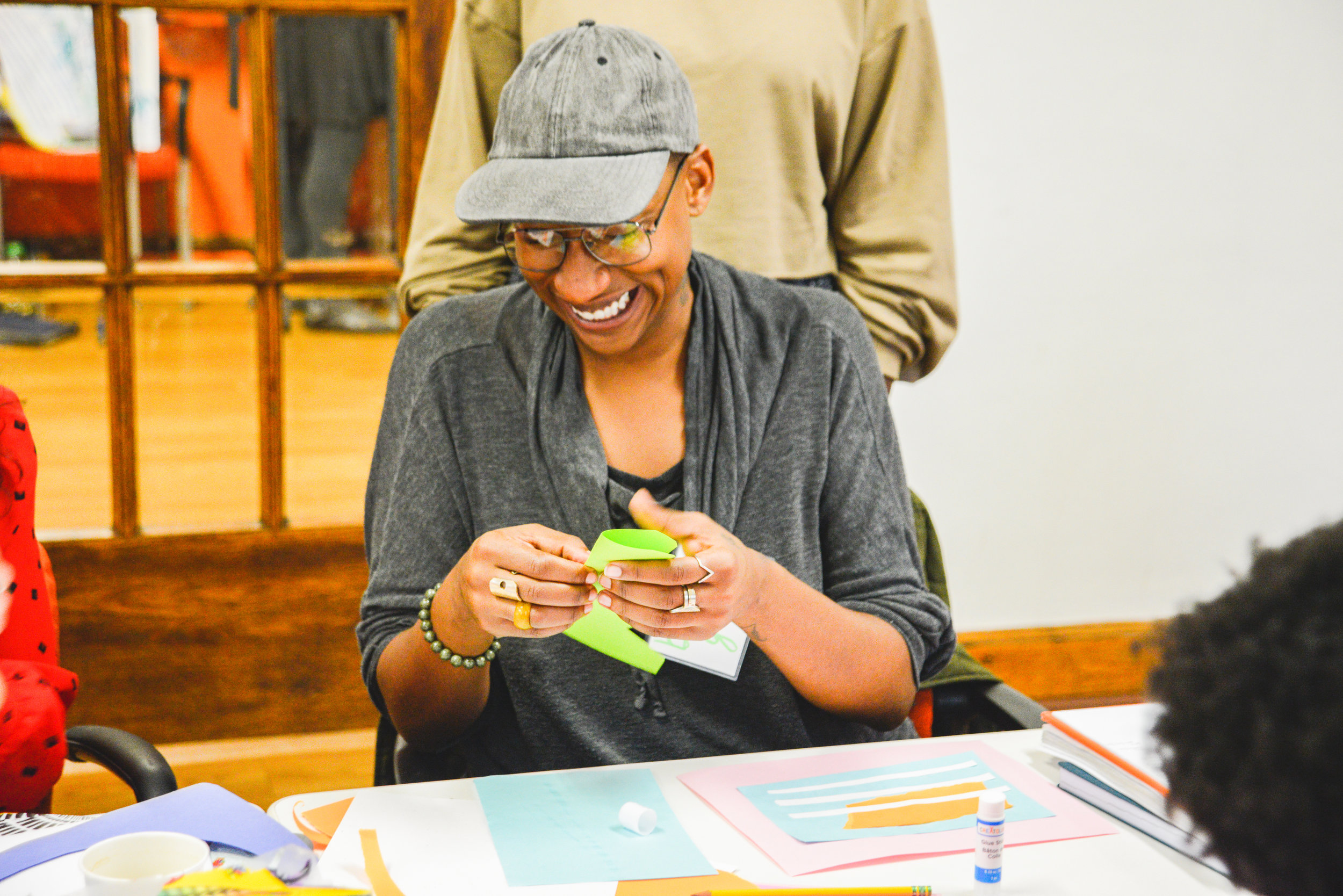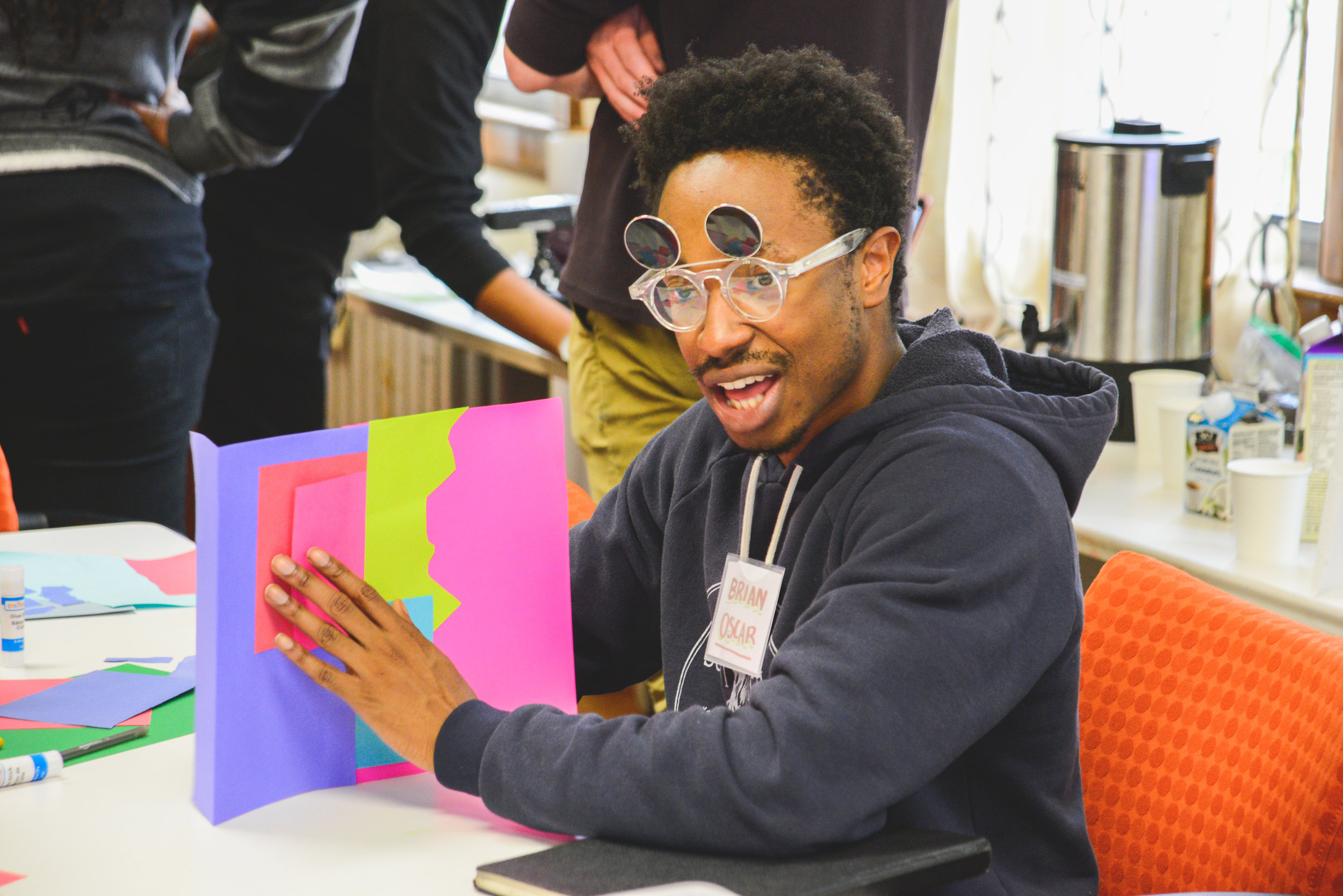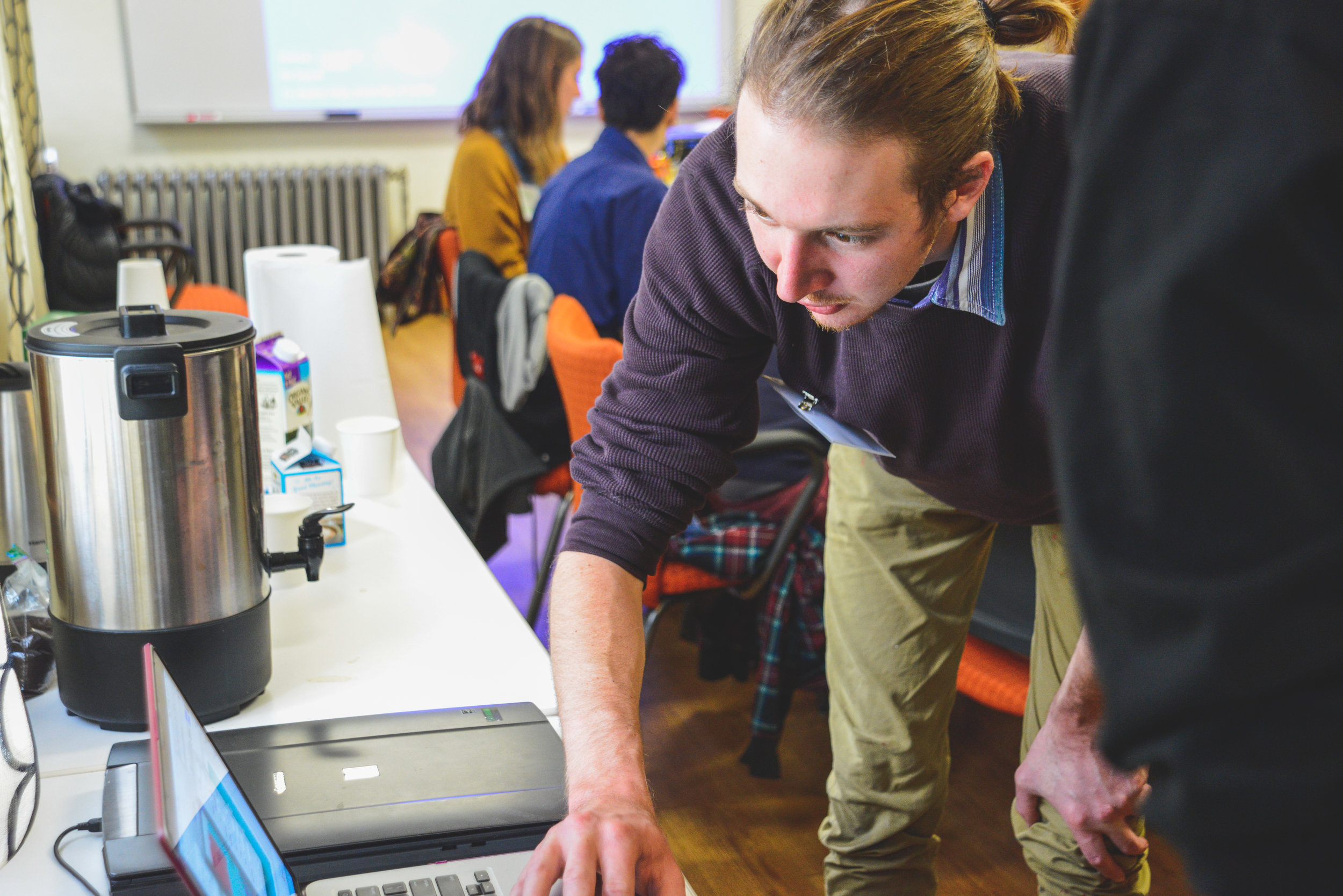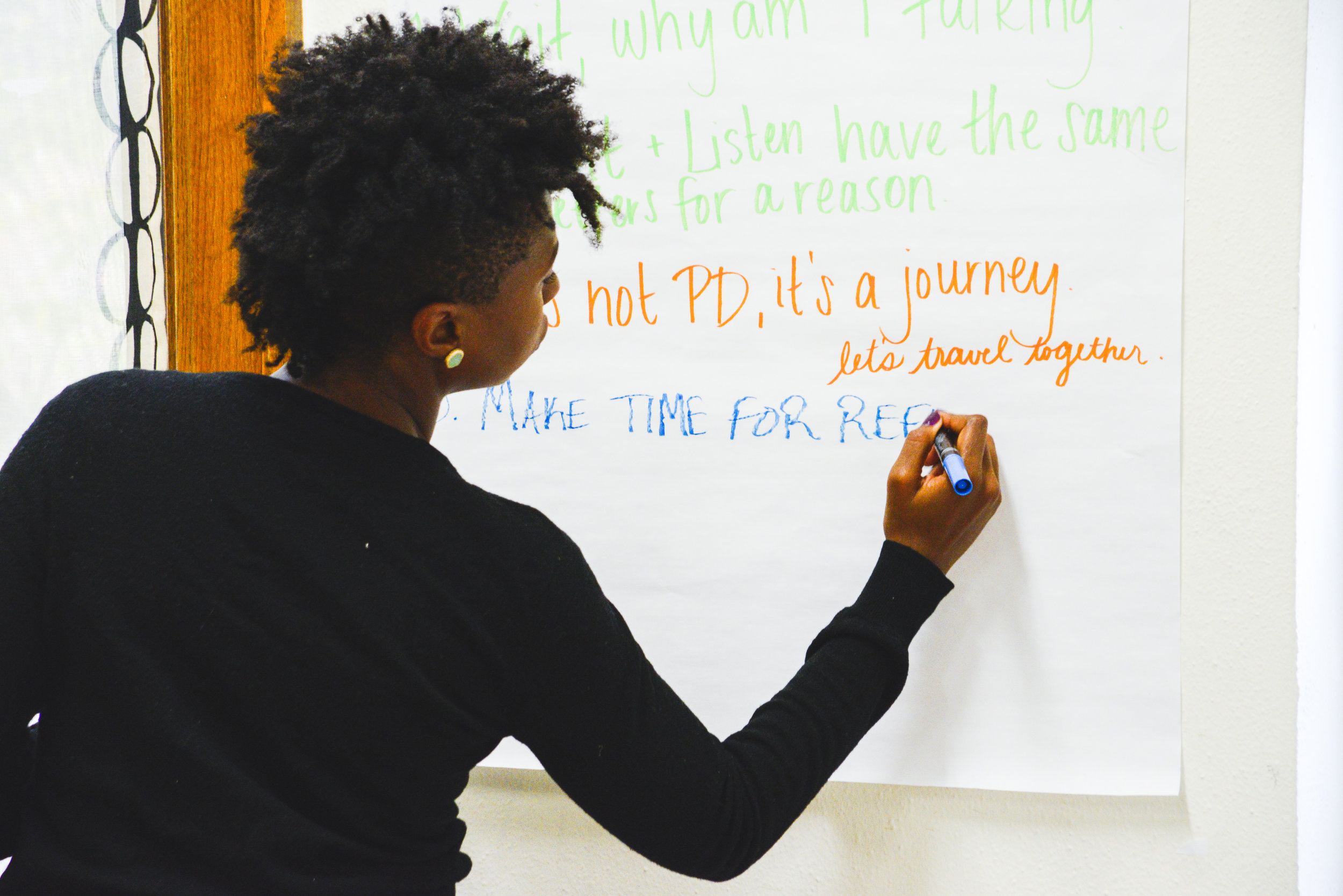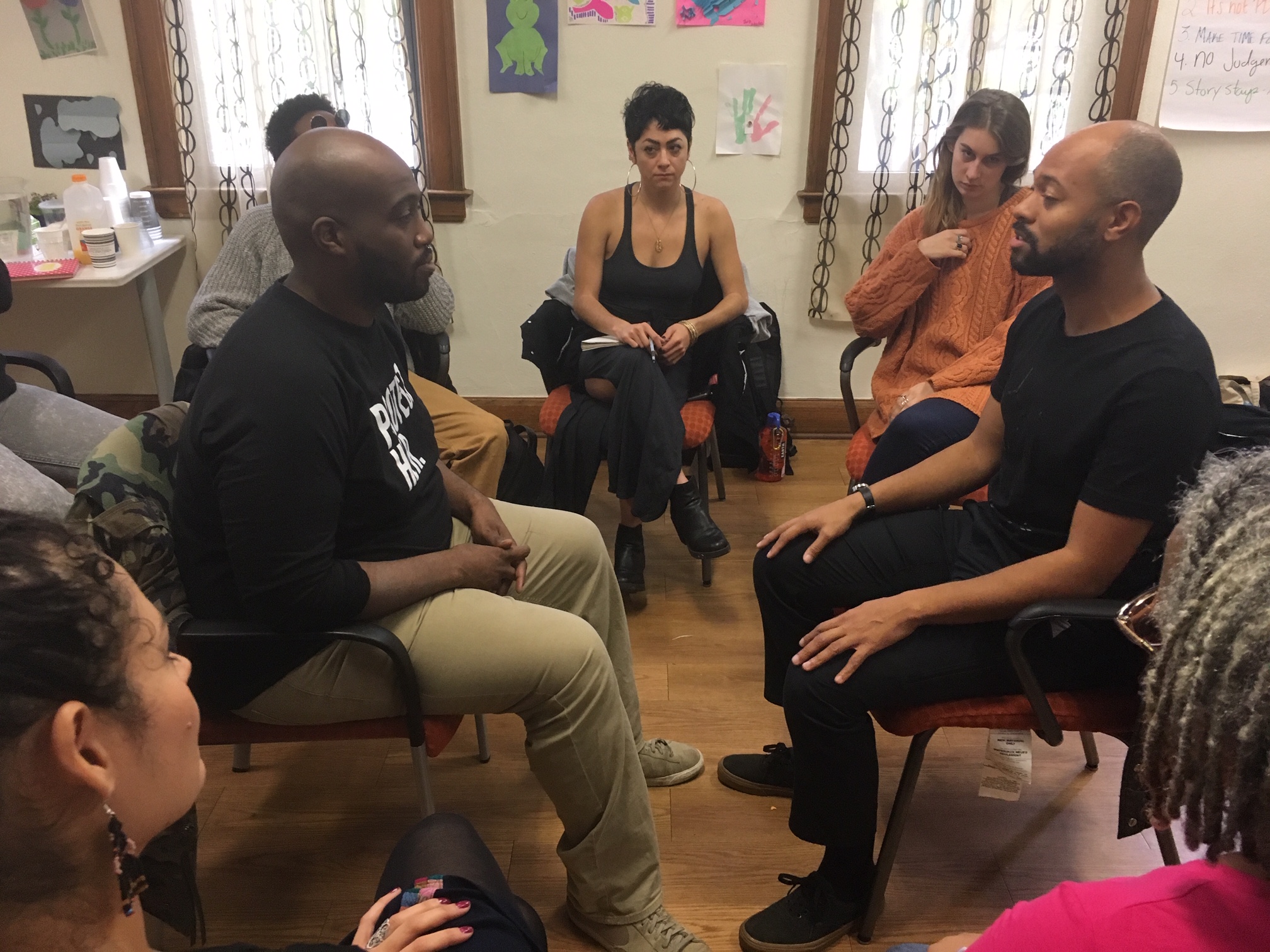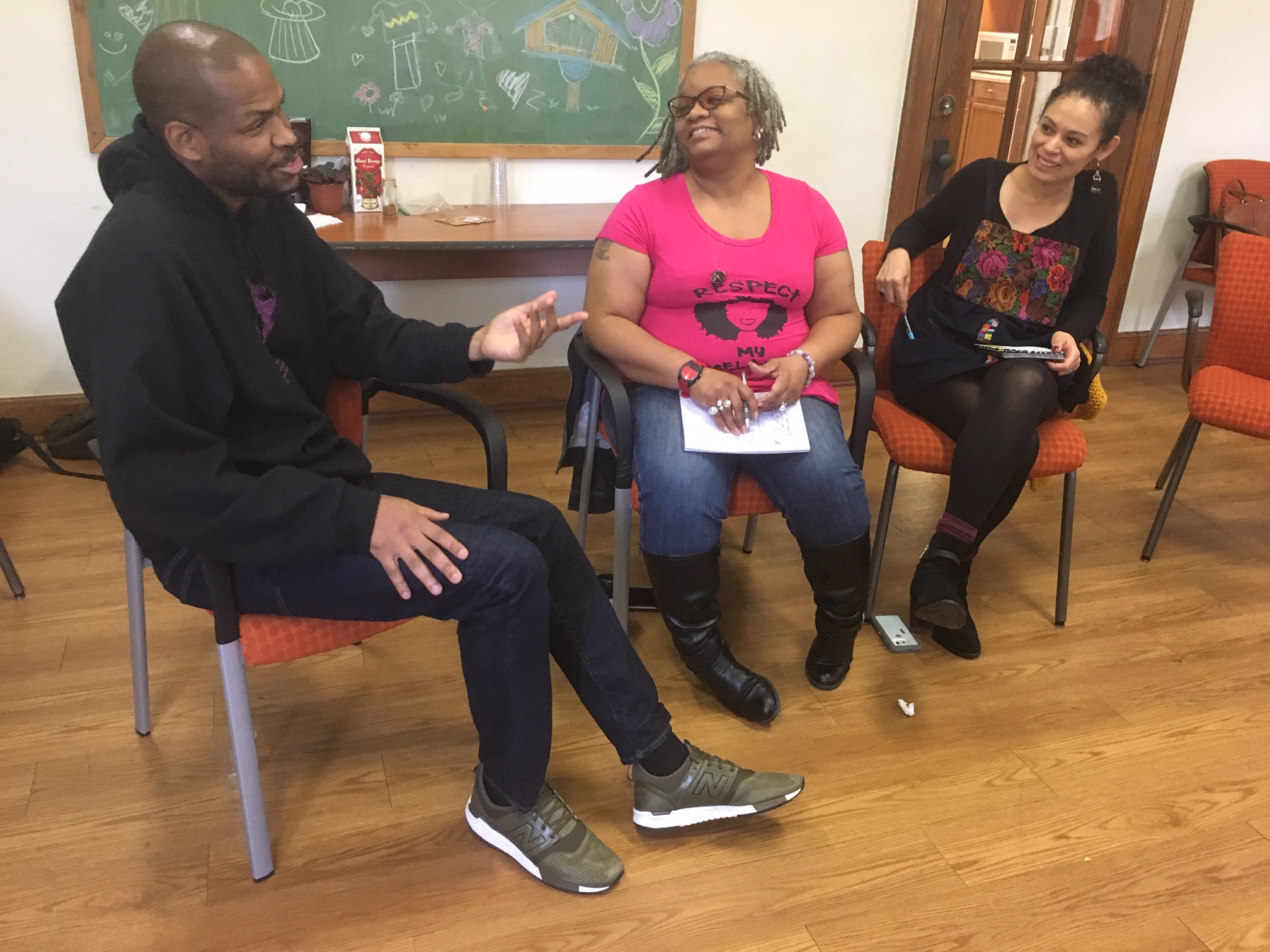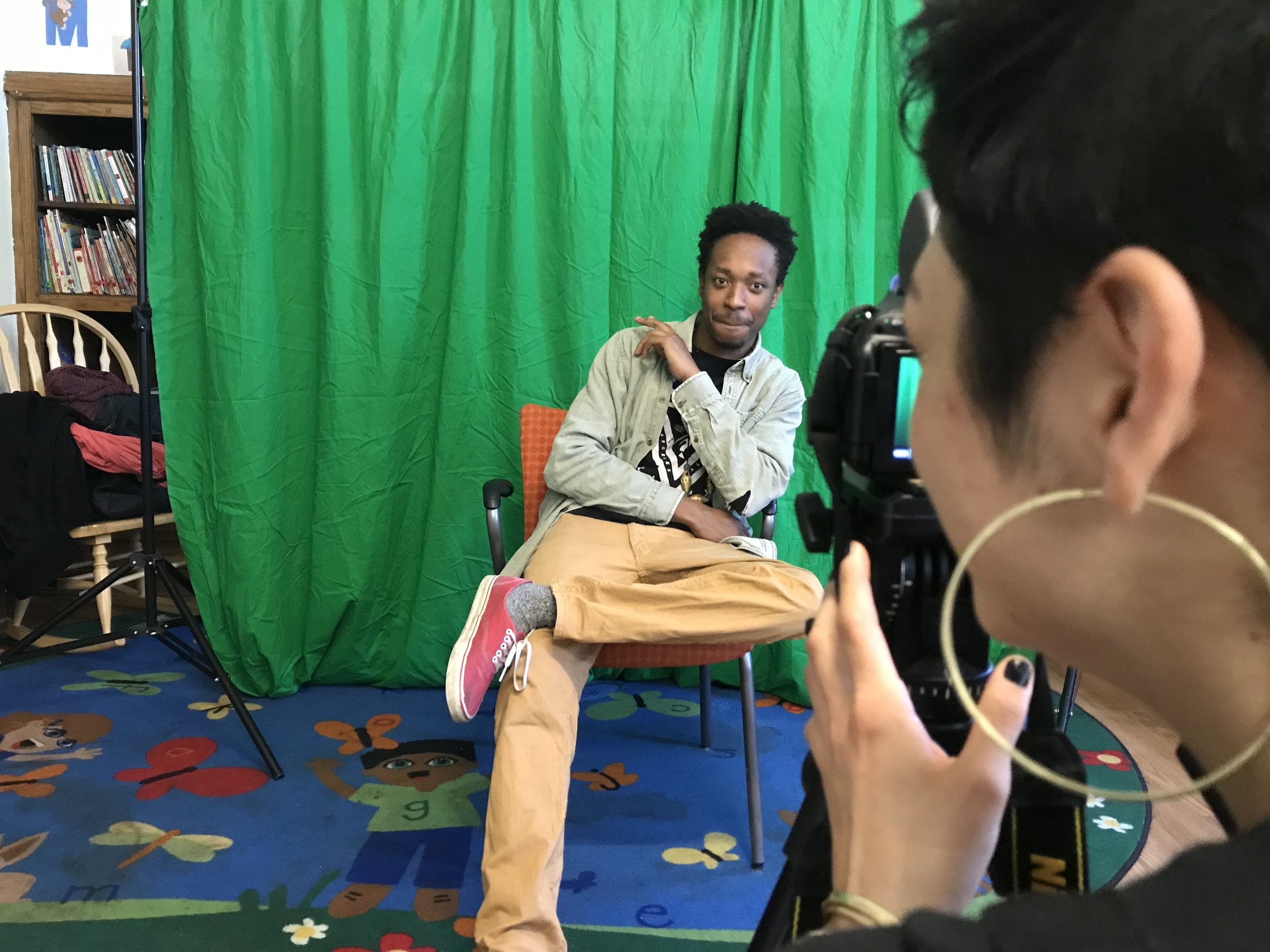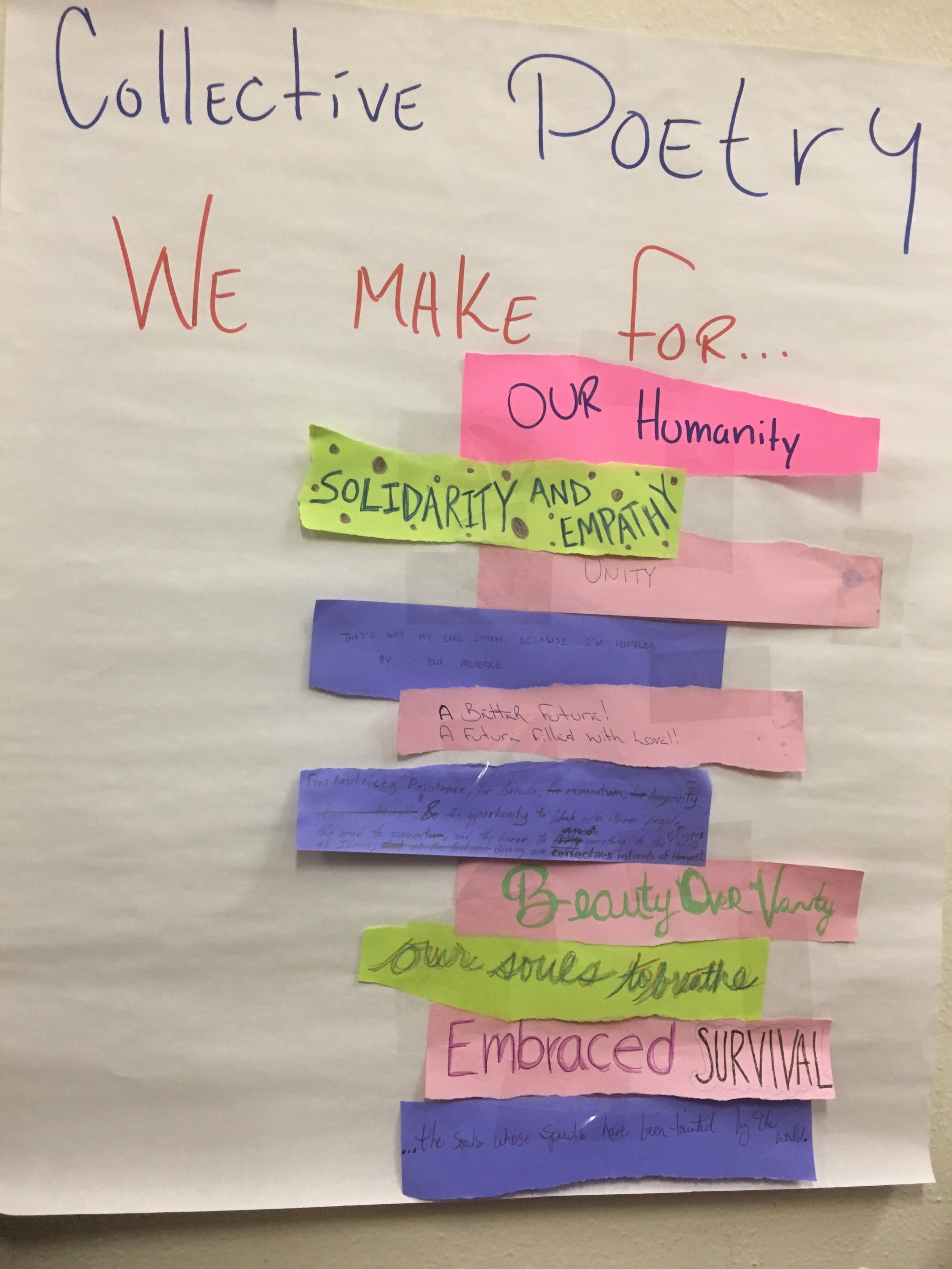Photo by Justin Milhouse
In August, 16 compassionate educators from across Metro Detroit convened for our 2018 Rida Institute Summer Intensive.
In the five years we have lead this training, every year we’re surprised by how it unfolds. With each iteration, we work to refine the training and weave in our new learnings.
Our purpose with the Rida Institute is to facilitate a transformative space for educators to create more humane lives and more humanizing educational spaces. This year, we centered connection between people in the classroom, brought amazing guests to enrich the space and reaffirmed our commitment to our purpose as educators.
Practicing Connection
When you are connected to yourself and to others you are much more able to show up, and how we show up as educators sets the tone of all the work we do. Connection can invoke joy, create space for collaboration and help turn strangers into co-creators and idea collaborators, into project partners and friends. What happens if we begin from this frame of reference in our classrooms everyday? At the Rida Institute, we return to this practice several times; over the three days it is always our starting point.
Photo by Erin Allen
We practice connection by inviting educators to use simple questions as tools for building relationships, and what usually starts as a quiet space of relative strangers explodes with voices speaking about their values, their lives and their work. So often as educators we want our students connect with each other, but we rarely have the opportunity to practice doing that ourselves. It turns out that making connections can be simple but we rarely make room for it, blaming busy schedules and urgent content. But starting with relationships between people learning together is just as important.
Amazing Guests
One of our favorite components of the summer intensive is highlighting the voices of people representing disparate intersections of education. Guest presenters activate the space and provide necessary dynamism to our ideas about humanizing schooling.
“It’s about the learning; it’s not about the grade. I want to make the grade irrelevant. For a lot of students, that F has followed them their whole lives. It takes a lot for a student to disconnect that grade from their identity.”
Four guest presenters -- more than we’ve ever had -- shared their expertise on what it means to create humanizing educational spaces. Five young people from 482Forward Youth shared the motivations, learnings, successes and hopes for their work in education policy across Michigan.
Activist, healer and author adrienne maree brown spoke about employing emergent strategy to transform a classroom into a collective creation between educators and students. Author and educator Carla Shalaby illuminated the impact of punitive practices in schools and reintroduced us to the “troublemaker” as a resistor to dehumanizing classroom management. Educator and former PIE Director Ameerah Saidi gave us a glimpse into her classroom, demonstrating how content becomes a tool to explore and challenge the status quo.
Defining Purpose
“My purpose as a teacher is to fan the flame so that students can know in themselves and in one another the gifts that lie within them and help them unbury them, unwrap them, find delight in them, and build skills to empower them.”
Our purpose is our reason for being and doing, and it’s an incredible source of power. In a system where teachers often feel unsupported, overstretched and disempowered, returning to their purpose becomes vital for their resilience and ability to create relevant and compassionate classrooms.
If we aren’t clear on why we’re in a classroom, we are beholden to the multitude of tasks that appear day to day. When we are present on purpose, we are clear about what our job is as educators. From this point of clarity, teachers can cast out the distractions that often lead to burnout and focus on the work that gives us life.
This is the sentiment we aim to awaken in educators when we ask them to explore and refine their purpose for doing this work.








Photos by Justin Milhouse
WHAT NOW?
Have you ever fallen in love with a room full of people? You look around the room and feel deeply connected to every single person in that room. You are bursting with benevolence and hopeful wishes for every person. And you just want to see each of them blossom into the biggest, baddest flower you ever seen. That is how we left this year’s Rida summer intensive -- connected, inspired and ready.
We are so excited to continue working with these teachers throughout this current school year, as we meet monthly to support each other in bringing our purpose to fruition in our educational spaces. You can learn more about PIE’s practices and the Rida Framework in our Guide to Humanizing Schooling. Read the guide online or purchase a copy at the AMP Store.






